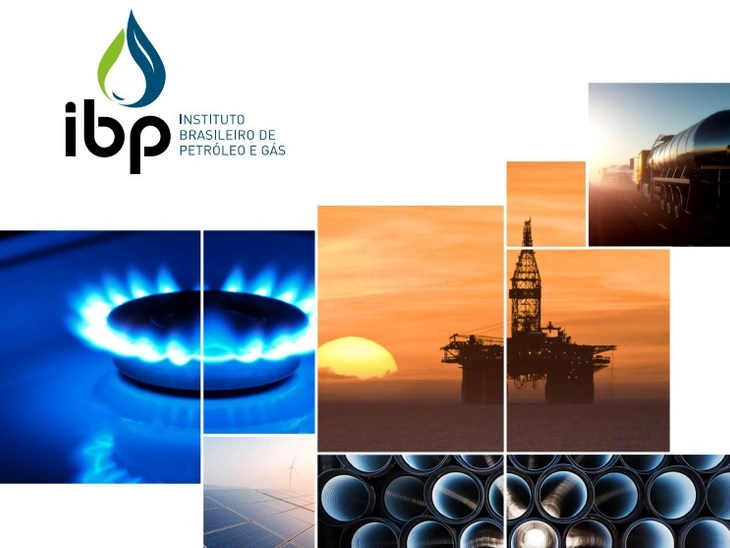
 Investments
Investments
T&B Petroleum/Press Office IBP

The oil and natural gas sector accounts for 46% of the country's domestic energy supply, being an important driver of the national economy. For the period from 2023 to 2030, the Brazilian Oil and Gas Institute (IBP) projects an investment of US$ 175 billion for the upstream (Exploration and Production) and the generation of 570 thousand direct and indirect jobs each year. In a scenario of energy transition, industry will continue to play a key role in meeting society's energy demands.
In this context, IBP produced the Industry Agenda for the period from 2022 to 2024, launched at an exclusive event for members this Tuesday, 26, whose pillars are: market structure, business environment, ESG agenda and energy transition. In this material, the IBP describes the main work fronts necessary to pave, in a competitive and sustainable way, the Brazilian energy future, contributing, even more, to the economic and social development of the country.
The agenda highlights that the relevance of fossil fuels will extend for a few more decades, as they are currently responsible for more than half of the planet's energy supply.
“There is no energy transition without oil and gas, even in the Brazilian scenario, whose energy matrix already has 48% of its supply from renewable sources, compared to a global average that is around 14%”, says Eberaldo de Almeida Neto, president of the IBP.
The executive also defends the establishment of a carbon market, which opens up opportunities for countries like Brazil. “It is essential to price so that the accounts are made and the incentives are given. People and companies move for stimuli", points out Almeida Neto.
Maintaining a business environment that respects contracts and market rules, with prices based on supply and demand, is essential to guarantee national supply and attract investment.
“Brazil has to follow market prices, plurality of agents and entrepreneurial freedom. These are good practices that guarantee fuel supply and the growth of the economy and the sector, generating jobs and taxes", says Rafael Chaves, chairman of the IBP board of directors and executive director of Institutional Relations and Sustainability at Petrobras.
It is also worth mentioning that, in Brazil, the oil industry accounts for large collections for the Union, states and municipalities. In the last 11 years, R$ 2.1 trillion in taxes, ICMS, royalties, special participations and signature bonuses were paid by the sector, according to a calculation by the National Agency of Petroleum, Natural Gas and Biofuels (ANP).
In addition, the oil and gas industry is very relevant to the Brazilian trade balance. Crude oil was the country's third most exported product in 2021, generating revenue of over US$30 billion. With that, Brazil positioned itself as the eighth largest consumer and the eighth largest producer of oil in the world, last year.
The performance of regulatory agencies, which seek to stimulate the sector through technical analysis, is essential for the constant improvement of the business environment. "The ANP works in partnership with the industry. Our goal is the same: the development of the sector. For our part, we take care of the regulatory framework. Legal certainty, an interest shared with the market, is very important to attract investment and, with that, , generate employment and income", said Rodolfo Saboia, director general of the National Agency of Petroleum, Natural Gas and Biofuels (ANP), when participating in the launch of the Industry Agenda.
The following are the main topics of the sector in the Industry Agenda 2022-2024:
Strengthening regulatory agencies and swiftly implementing the regulatory agenda planned for the 2022-23 biennium;
The continuity of REPETRO as a way of not punishing productive investment in a capital intensive sector, guiding the collection in the production phase;
Support the improvement of E&P contractual models in order to reduce the risks that scare away investments, especially with the adoption of the concession regime in the pre-salt polygon and possible extension of production sharing contracts;
Encouraging the attractiveness of exploration and production in new frontiers, areas of marginal accumulation and mature fields;
The improvement of the environmental licensing process and the planning of the supply of blocks;
Regulatory improvement of topics relevant to the industry, such as field definition based on technical criteria, emergency response and decommissioning of production systems;
Improving taxation in the natural gas and downstream sectors, to adapt it to the new market structure;
The downstream tax simplification through the implementation of monophasia and the fight against evasion and default practices;
Support for projects to classify crimes of theft and theft of fuel and lubricants;
Benchmarking with successful and competitive markets across the oil and gas chain;
The defense of the implementation of the Gas Law, influencing planners and regulators in the definition of rules that guarantee the transition to an open, dynamic, competitive market, with a multiplicity of agents and isonomy of treatment for producers/suppliers;
Support for the unbundling of the gas sector and, consequently, the separation between regulated and competitive activities;
The defense of the continued deconcentration of the refining activity, which will guarantee an open market, with a multiplicity of agents, business models, isonomy and prices in line with the international market.
With the launch of the Industry Agenda 2022-2024, the IBP further reinforces its role of connecting all links in the oil and gas industry chain and its mission to be the main representative and interlocutor of the sector with society as a whole.
Check the Industry Agenda here.

Contact us